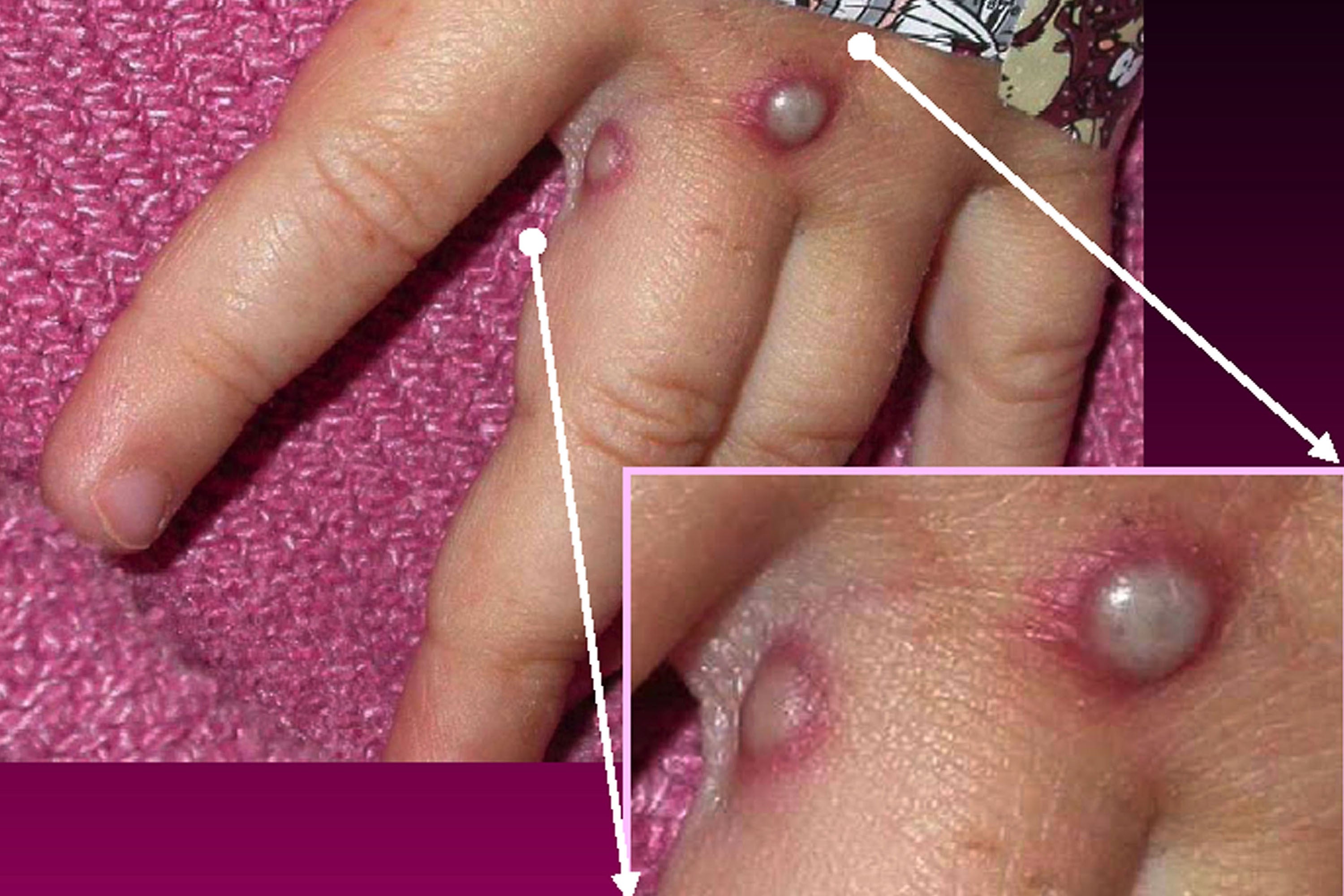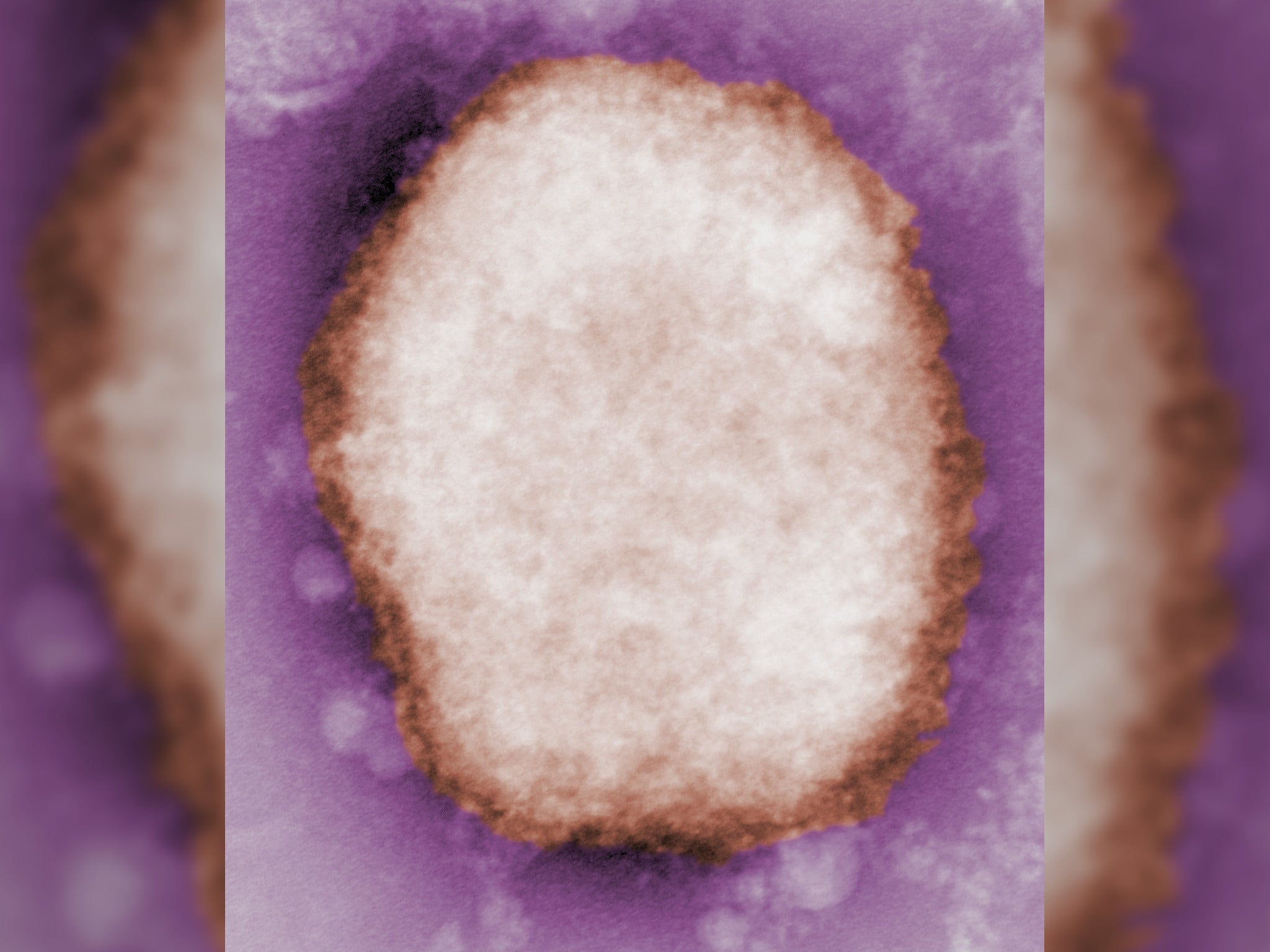EU warns monkeypox could become endemic and tells countries to take tougher action to tackle outbreak
Officials tell nations to take stock of smallpox vaccines and antivirals as cases grow

The EU has told European nations to take steps to tackle monkeypox or risk the disease becoming endemic on the continent.
Countries have been urged to review their stocks of the smallpox vaccine, which can be used to immunise against monkeypox, and prepare antivirals that could be used to treat the virus.
In a warning issued on Monday, the European Centre for Disease Prevention and Control (ECDC) - the EU’s agency for infectious diseases - also urged member states to update their contract tracing and diagnostic capacity for orthopoxviruses, which cause monkeypox.
It said a failure to prevent the disease spreading to wildlife could also result in it becoming endemic in Europe.
The ECDC said as of 23 May a total of 85 cases of monkeypox acquired in the EU accross eight EU counties - Belgium, France, Germany, Italy, Netherlands, Portugal, Spain and Sweden.
Andrea Ammon, director for the ECDC said “Most of the current cases have presented with mild disease symptoms, and for the broader population, the likelihood of spread is very low”
However, she said the likelihood of further spread of the virus through close contact, such as sexual contact, is considered to be high.
The ECDC said those who have caught the disease remain isolated until their lesions heal completely, which can take 21 days. The UK government is also advising those who have been in close contact with someone who has been diagnosed with monkeypox to self isolate for the same period of time.
Stella Kyriakides, European Commissioner for Health and Food Safety, said: “I am concerned about the increased number of reported monkeypox cases in the EU and globally. We are closely monitoring the situation, and whilst currently the likelihood of spread in the broader population is low, the situation is evolving.
“We all need to remain vigilant, ensure that contact tracing and adequate diagnostics capacity is in place, and ensure that we have the necessary vaccines, antivirals and personal protective equipment for health professionals available.”

The ECDC’s statement said monkeypox viruses can cause severe disease in certain groups, such as young children, pregnant women and immunosurpressed people but added “further investigations are needed to accurately estimate the level of morbidity and mortality in this outbreak.”
It added: “If human-to-animal transmission occurs, and the virus spreads in an animal population, there is a risk that the disease could become endemic in Europe.
“As such, there needs to be a close intersectoral collaboration between human and veterinary public health authorities to manage exposed pets and prevent the disease from being transmitted to wildlife.”
However it said the probablility of a “spill-over” into the animal population in Europe is very low.
The move comes after guidance published by the UK Health Security Agency on Saturday advising preexposure vaccination with the MVA-BN vaccine.
This includes for health care workers who are due to care for a patient with confirmed monkeypox and those undertaking decontamination processes, even if they will be wearing personal protective equipment.
UK guidance states that two vaccine doses should be given at least two days apart.
For those already exposed to the virus recommendations are to have a single dose ideally within 14 days.
Guidance said those who are immunosuppressed should not routinely participate in the care of a patient with a disease such as monkeypox.
Join our commenting forum
Join thought-provoking conversations, follow other Independent readers and see their replies
Comments
Bookmark popover
Removed from bookmarks